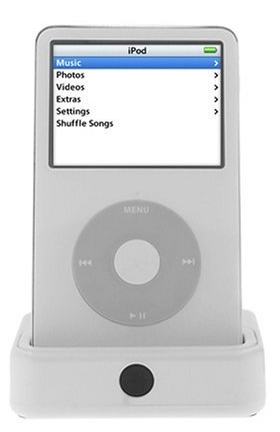The iPad success story -- giving us what we want, again


Related: Apple’s next-gen iPad: New battlefields emerge | Microsoft’s business pitch for Windows 8 depends on tablets | Apple’s New iPad In The Enterprise: Laptop Replacement Gets Closer | The new iPad’s great but what’s wrong with a good, inexpensive Android tablet? | CNET: New iPad hands on | CNET: All CNET iPad coverage (roundup) | iPad HD will surpass laptops on key features
All we have to do to understand why the iPad has dominated the market is look back at Apple's recent history. The iPod was introduced to an unsuspecting world years ago, offering a radical departure in how users listened to music. This was a common pastime for millions, and the iPod simply made it better and more enjoyable.
As brilliantly accounted by Farhad Manjoo of Slate, Apple improved the iPod every year, not radically but in simple ways, and made it cheaper. Competitors scrambled to best the iPod without success, because they took the path of adding whiz-bang features that didn't matter to most consumers. Remember Zune squirting? Neither do the millions of folks who bought an iPod, or two or three.
Then the iPad hit the scene, and Apple took the successes of the iPod and iPhone and rolled it into the new tablet. It let buyers do the things it could do on both the previous i-products, but better with the larger screen. It was still easy to use and carry, but could make the things prospective buyers already wanted to do, better and more enjoyable.
Now Apple is clearly following the successful business model with the iPad, refreshing it every year. Not making it radically different or better, but better in simple ways. The company has figured out what drives buyers in the mainstream, and that is the desire for controlled change.
Human nature delights at change, finding something new or new ways to do common tasks. This is true for the youngest toddler up through the oldest grandma. We simply love finding a new thing to make what we enjoy even better. This controlled change is the basis for the Apple model proven so successful with the iPod, iPhone, and now the iPad.
In almost every case, making a competing product with more sophistication intimidates the average consumer. I'm not referring to the small percentage of tech-savvy consumers who delight in learning radically new things. The regular consumer has a knee-jerk reaction to having to learn totally new things, and this is the major failing of competing tablets.
It gets back to the controlled change that Apple gives us with the iPad. Just new enough to be a delight to discover, but not radically different to require learning a lot of new things. You pick up the iPad, quickly discover how easy it is to do what you already like doing, and you never think more about it. Pick up a competing tablet and you have to figure out not only what you can do with it but how to make it happen.
The controlled change that is successful for Apple is going the be the biggest hurdle for Windows 8 tablets coming down the pike. Even if these are intuitive enough to use out of the box, the Windows moniker implies that a lot of learning will be required to use them. There will be a knee-jerk reaction to this for the average consumer, and they won't look at them seriously.
The Apple model has been proven once again to be wildly successful with the iPad. This will continue as the product evolves year after year while competitors scramble aimlessly to make a difference. Apple haters will get louder while railing against the methodology the company is using, but millions will continue to buy iPads. Apple is giving the mainstream consumer what it wants, yet again.